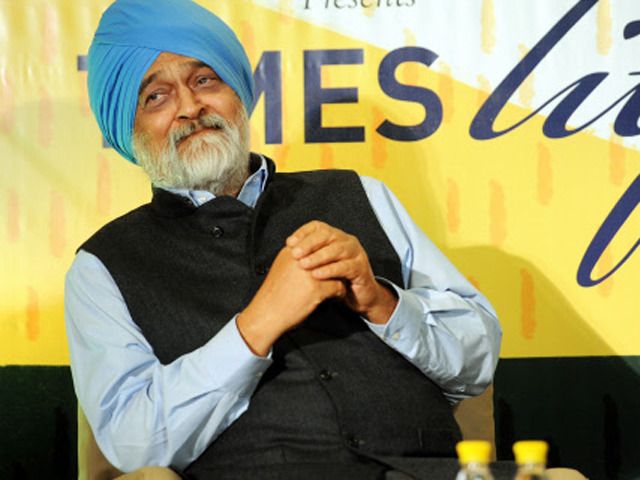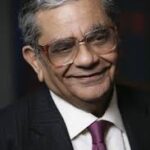Montek Singh Ahluwalia: 7 Powerful Contributions to India’s Economic Transformation
Montek Singh Ahluwalia is one of India’s most respected economists and policymakers, known for his influential role in shaping the country’s economic reforms and global economic relations. With a career spanning over five decades, Ahluwalia has played a central role in India’s transition from a closed, state-controlled economy to one of the world’s fastest-growing markets. But what makes his life and career truly significant? Let’s explore the history, contributions, and lasting impact of Montek Singh Ahluwalia on India and the world.
Early Life and Education
Montek Singh Ahluwalia was born on November 24, 1943, in New Delhi, India, into a well-educated family with a deep appreciation for public service. He studied economics at St. Stephen’s College in Delhi and then completed his postgraduate studies at the University of Oxford. Ahluwalia’s passion for economics grew during his time at Oxford, where he was exposed to global economic trends and gained a solid foundation in economic theory.
After completing his education, Ahluwalia began his career in the Indian Administrative Service (IAS), but his true calling came when he joined the Indian government as an economist. His work in the Indian government soon propelled him to significant leadership positions, where he would shape India’s economic future.
Key Contributions to India’s Economic Growth
Montek Singh Ahluwalia is best known for his role in India’s economic reforms, particularly during the 1990s when the country faced a severe balance of payments crisis. In 1991, under the leadership of then-Prime Minister Narasimha Rao, Ahluwalia was appointed the Deputy Chairman of the Planning Commission of India. This was a pivotal time for India, as the country was facing the worst economic crisis since its independence.
Ahluwalia, along with then-Finance Minister Dr. Manmohan Singh, played a critical role in steering India through this crisis and implementing economic reforms that liberalized the economy. These reforms included reducing trade barriers, encouraging foreign investment, and privatizing state-owned industries. The liberalization of the Indian economy under Ahluwalia’s guidance helped the country transition from an inward-looking economy to a more globally integrated one, setting the stage for the rapid growth that India has seen in the following decades.
Ahluwalia’s work in these reforms was key in shaping India’s modern economic landscape. His emphasis on economic liberalization, deregulation, and the importance of international trade and investment helped the Indian economy grow at an unprecedented pace.
Daily Life and Personal Commitment to Public Service
Montek Singh Ahluwalia’s daily life reflects a disciplined and focused approach to work. He is known for his long hours spent studying economic trends, reading policy papers, and attending meetings with government officials and global experts. Ahluwalia’s commitment to India’s development is evident in his consistent work ethic and deep passion for economic issues.
Though a busy policymaker, Ahluwalia also prioritizes his family life and enjoys discussing economics and current affairs with his colleagues and students. His approachable personality and dedication to public service have made him a respected figure among his peers and the younger generation of economists. Over the years, he has mentored several economists, imparting his knowledge and experience to those who are shaping India’s future.
Significance of Montek Singh Ahluwalia’s Work
Ahluwalia’s significance lies not only in his roles as an economist and policymaker but also in the long-term impact of his decisions. He is a champion of India’s globalization and liberalization efforts, and his work has helped make India an important player in the global economy. Under his leadership, the Planning Commission focused on inclusive growth, poverty reduction, and improving the quality of life for millions of Indians.
One of the key ideas that Ahluwalia championed was the concept of inclusive growth — ensuring that India’s economic progress benefits all segments of society, including the poor and marginalized. His commitment to addressing issues like poverty, education, and healthcare helped shape India’s economic policy in a way that balanced growth with social justice.
Ahluwalia’s significant contribution to India’s public policy has earned him recognition both nationally and internationally. His work has influenced not only India’s economic policies but also how international organizations, such as the World Bank and the United Nations, view India’s development model.
FAQs About Montek Singh Ahluwalia
1. What was Montek Singh Ahluwalia’s role in India’s economic reforms?
Ahluwalia played a central role in India’s economic liberalization in the early 1990s, especially during the balance of payments crisis. He helped steer the country through the crisis by implementing reforms that included trade liberalization, foreign investment policies, and privatization.
2. What is Montek Singh Ahluwalia’s philosophy on economic growth?
Ahluwalia emphasizes inclusive growth — ensuring that the benefits of economic progress reach all sectors of society, especially the poor. He believes that economic liberalization and international trade are crucial to India’s growth but must be balanced with measures for social welfare.
3. How did Montek Singh Ahluwalia contribute to global economics?
Ahluwalia’s work on India’s economic liberalization was closely watched by international economists and policymakers. His insights into economic growth, poverty alleviation, and globalization have influenced global economic discourse, especially in emerging markets.
4. What is Montek Singh Ahluwalia’s legacy?
Ahluwalia’s legacy lies in his role as a key architect of India’s economic reforms. His contributions to economic policy, liberalization, and inclusive growth have had a lasting impact on India’s economic landscape, and his work continues to influence policymakers today.
5. Has Montek Singh Ahluwalia written any books?
Yes, Montek Singh Ahluwalia has authored a book titled “Backstage: The Story Behind India’s High Growth Years,” where he reflects on his experiences and insights into India’s economic transformation during the 1990s.
Conclusion
Montek Singh Ahluwalia’s life and career are a testament to the transformative power of sound economic policymaking. His role in shaping India’s economic reforms has had a profound and lasting impact, helping the country become one of the world’s fastest-growing economies. Through his dedication, discipline, and visionary approach to economic policy, Ahluwalia has significantly contributed to India’s growth and its integration into the global economy. His work continues to inspire future generations of economists, policymakers, and leaders who are dedicated to the cause of economic development and inclusive growth.










